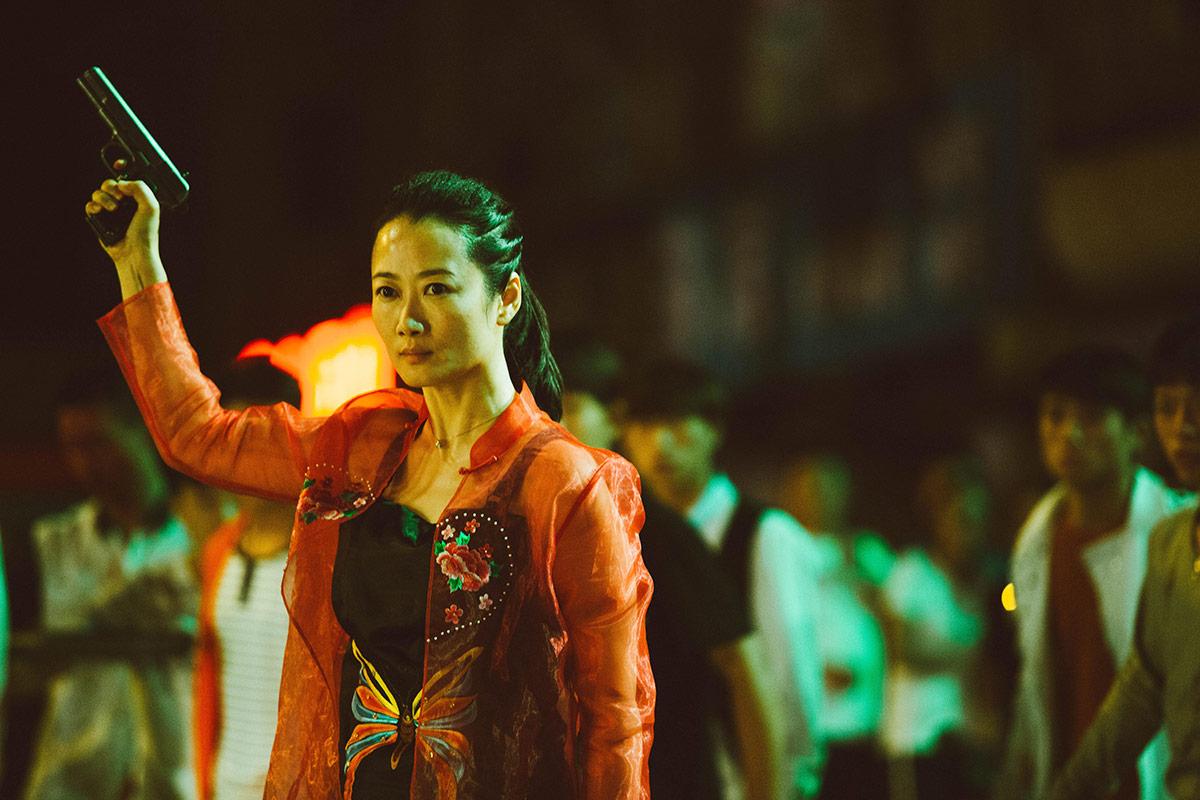At first glance, Jia Zhang-ke‘s “Ash is Purest White” feels like an immaculately perfect patchwork film, taking cues from his 2013 masterwork “A Touch of Sin” and his flawed, but brilliant, 2015 epic “Mountains May Depart,” as well as the docu-drama Chinese glimpse of “Still Life.” It’s odd, considering that Zhang-ke is not known for repetition — in fact, the only repetitiveness we keep seeing is the use of his wife and muse Zhao Tao in his movies. The director is famous for continuously trying to re-examine and reinvent the language of cinema with every movie.
However, “Ash is Purest White” might be the exception. Despite it being the director’s return to the “gangster” genre (we do need to emphasize the quotations here with what a gangster movie actually consists of in Zhang-ke’s world), it feels like a greatest hits, of sorts, for the director, rather than a step forward. The film, divided into three parts, is a look at a low-rent underclass of aspiring gangsters in eastern China, but more specifically, tackles the rise, fall, and moderate return to power of a gangster’s girlfriend.
READ MORE: The 2018 Cannes Film Festival: The 20 Most Anticipated Movies
The first part follows Qiao (Zhao Tao, in a magnificent, awards-worthy performance), who is in love with Bin (Liao Fan), the head of a local underworld of Datong in Shanxi but lacking any real clout or power to feel safe that he will be protected if enemy groups attack. When Bin is finally ambushed, in a driving scene of ferocious violence that recalls early Scorsese. Qiao, sitting in the backseat of the car, takes his gun and fires the weapon, saving his life and, consequently, taking the fall for “owning” the gun.
With Chinese law making illegal possession five years in prison, Qiao is locked up, as she refuses to rat on Bin. In the second part of the film, after being released from prison, Qiao tries to find Bin, who hasn’t visited her a single time during the stint, but he’s nowhere to be found. She eventually learns that Bin is now seeing a colleague’s sister. Qiao’s reaction to these events is too surprising to reveal. Finally, in the third part, set almost twelve years later in current day China, we have a final showdown between the two, but the less you know the better when it comes to Zhang-ke’s carefully crafted film.
The director’s knack for using American pop songs shows up here again, where hits like the Village People‘s “YMCA” and The Pet Shop Boys‘ “Go West” are used in dancing sequences that are a pure joy to behold. However, one can see that something has changed in the director’s output since “A Touch of Sin.” Sentiment and melodrama have snuck in, albeit in melancholic and bittersweet ways. “Ash is Purest White” is very much a love story but one soaked in tradition, honor, and code.
READ MORE: Lars Von Trier’s ‘The House That Jack Built’ Is Repulsive, Toxic Trash [Cannes Review]
However, that doesn’t mean that Zhang-ke’s well-known talent for choreographing action is missing. There are phenomenal fight scenes here, comparable to those in “A Touch of Sin,” that remind you of the visceral and kinetic touches that he is famous for. That’s the thing about Zhang-ke, you can’t pinpoint his films into a single genre. Here his influences range from Scorsese to Wong Kar-Wai to, especially, Antonioni, with the latter’s fingerprints revealed in a luscious hotel room sequence shot in a single take, that smolders ravishingly with the promise of sex without delivering any hardcore action.
Yet all the violence, love, family, and honor find a way to coexist, despite the director not being able to find a coherent whole. Whenever the focus is on Qiao’s efforts to survive and regain Bin’s love, the film hits its high marks. Ditto the tackling of the peculiar Jiangsu gangster underworld. From the backrooms of nightclubs to isolated gangster shacks in coal-mining parts of China, the crime world represented here has Bin very much as the henchman, with Qiao as not just his woman but also his consigliere. Refusing to be intimidated by the men around her, Qiao hits, bites, and slaps her way around Bin’s underlings, which makes “Ash is Purest White” very much a feminist fable. She’s part of what Bin would like to refer to as “the brotherhood,” except she’s the head henchman. She’s the brains behind the operation, the person in charge of “merchandising.”
Inevitably, this is a movie from a filmmaker obsessed with his usual fetishistic themes. While expectations for this film were high, don’t expect a landmark like “Platform” or “The World.” Zhang-ke is finally guilty of something he has never done before in his career — repetition. “Ash is Purest White” borrows heavily from “Mountains May Depart” — the narrative construct, the same actress, the musical gimmicks, even the flawed ending — and yet we are nevertheless absorbed by the finesse and grace in a film by this venerable artist. There’s something comforting, and frankly invigorating, about watching such an undeniably messy, sprawling, ambitious voice coming from the East. [B+]
Follow along with all our 2018 Cannes Film Festival coverage here.





